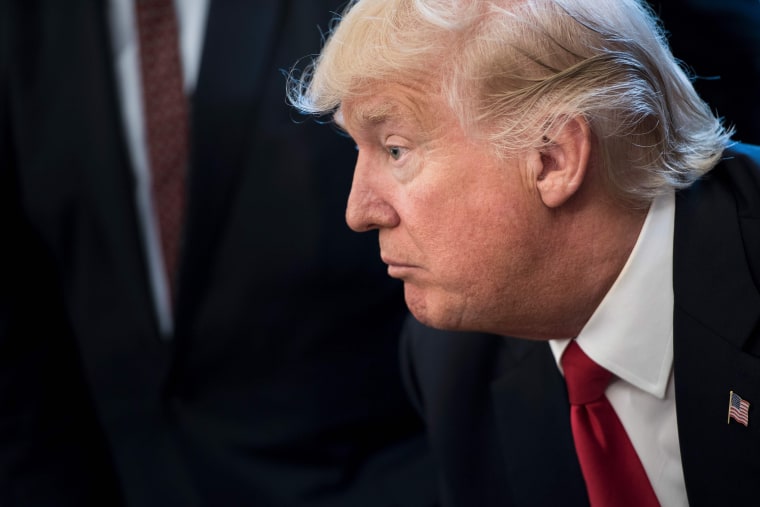Peter Navarro has become a prominent adviser to Donald Trump on trade issues, and he told Bloomberg Politics the other day how he approaches his role in the White House.
Speaking to Bloomberg on March 7, Navarro heaped praise on his boss and described his own role as that of an enabler."This is the president's vision. My function, really, as an economist is to try to provide the underlying analytics that confirm his intuition. And his intuition is always right in these matters," Navarro said.
Perhaps it's worth pausing to note what an "adviser" to the president is supposed to do: advisers advise. They offer guidance based on research, judgment, and subject-matter expertise. An economist, in particular, is not supposed to start with someone's intuition and then work backwards to bolster the preconceived idea. It's a classic example of post-policy thinking.
But in this White House, this dynamic has become the norm. When shaping life-changing policy, Trump and his team could rely principally on evidence, data, facts, and reason, or they can go with what strikes them as "intuitively" true. They keep going with the latter. It's the difference between technocratic governing and listening to the gut of a 71-year-old amateur with no background in government, public policy, or public service.
And it comes up all the time. The Washington Post reported over the weekend that White House aides provided Trump with data on the effects of Bush-era steel tariffs in 2002, which did not have the intended effect. "The president considered the advice," the article said, "but said that he was skeptical of economists and their data."
Of course. Why consider facts when the president has "intuition" and aides who tell him his hunches are always true?
Even on North Korea and the prospect of a meeting with Kim Jong-un, the president didn't listen to his diplomats, intelligence agencies, or national security team. South Korean officials said the dictator would like a conversation and the American president -- impulsively and without any real strategy -- accepted the invitation.
A Washington Post analysis added, Trump "has little worry about a dearth of qualified staff because he considers himself to be his own diplomat, negotiator and strategist."
In his acceptance speech at the Republican National Committee in 2016, Trump declared, "Nobody knows the system better than me, which is why I alone can fix it." Maybe he meant that literally?
The Associated Press went on to report on Friday:
The president has long considered himself his own best consultant, saying during the presidential campaign: "I'm speaking with myself, number one, because I have a very good brain and I've said a lot of things."Trump has told confidants recently that he wants to be less reliant on his staff, believing they often give bad advice, and that he plans to follow his own instincts, which he credits with his stunning election, according to two people who requested anonymity because they were not authorized to speak about private conversations.
By this reasoning, for Trump, the White House's staffing crisis isn't really a crisis at all. All the president needs is his intuition and some aides to execute his vision.
